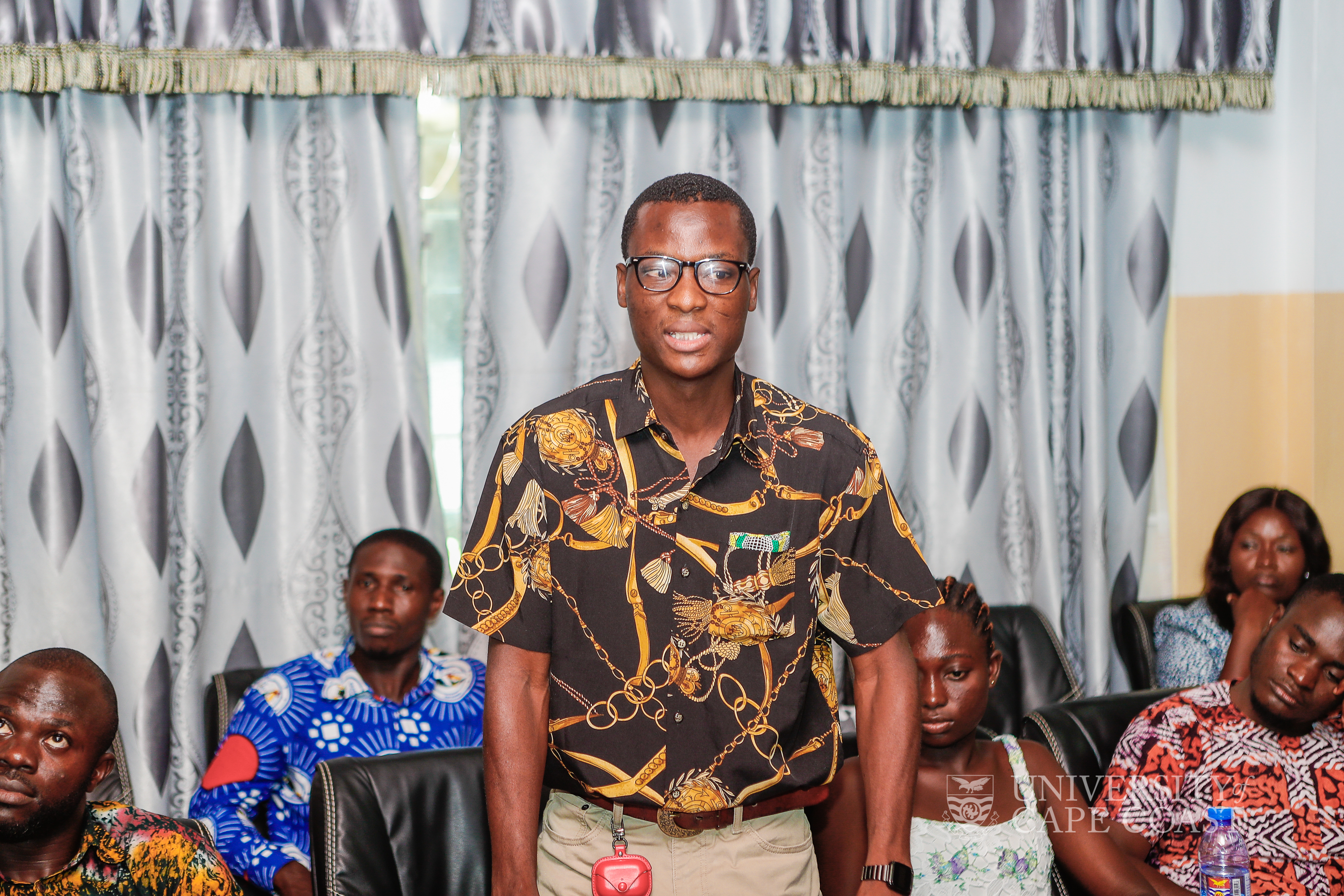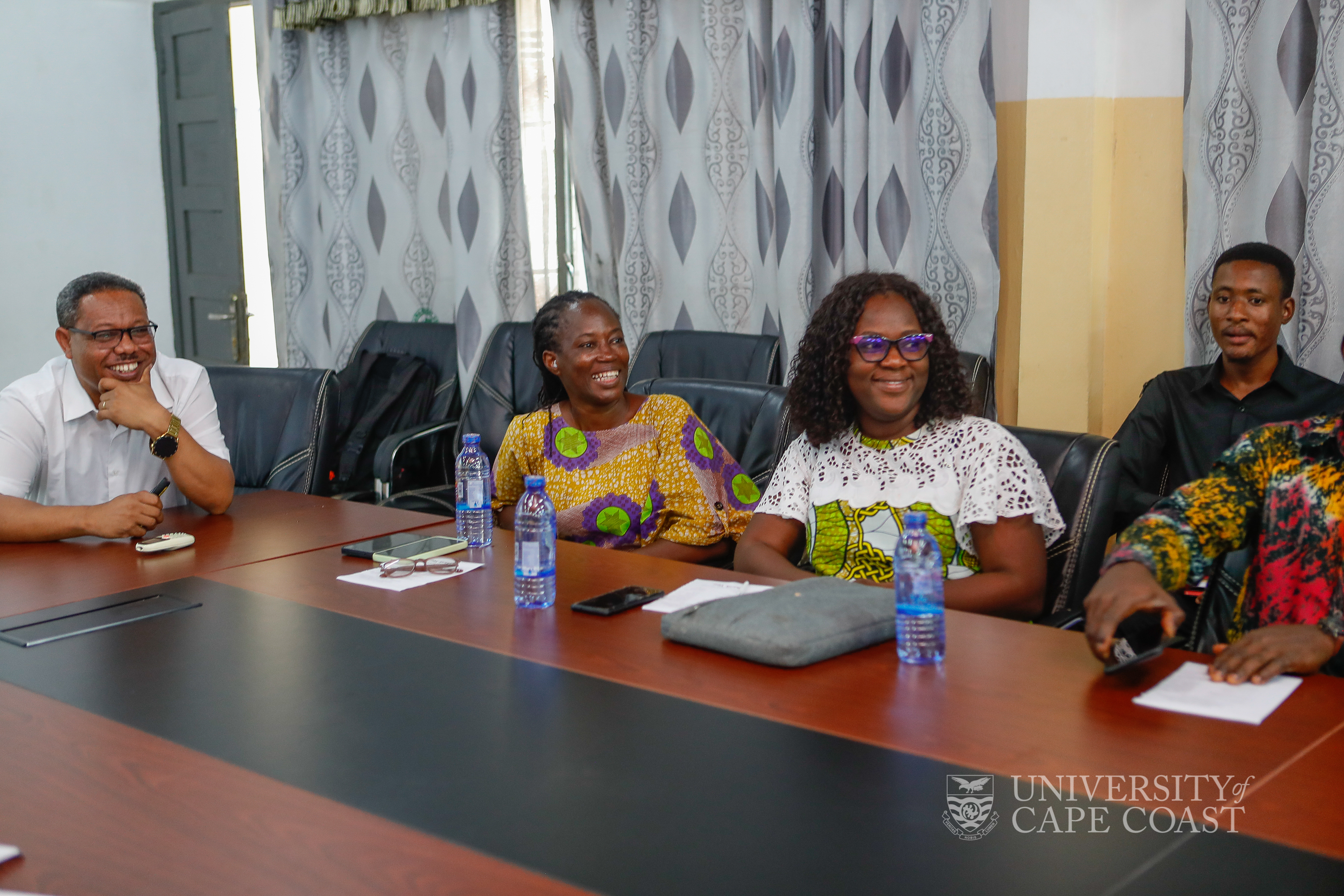A former acting Head of the Department of Agricultural Economics and Extension, Prof. Martin Bosompem, has rebuffed suggestions among a section of the public that research works by academia are lying on the shelves to the detriment of policymakers.
He insisted that policy makers were rather not interested in using their studies to address challenges affecting national development and, therefore, implored the general public to clear up the popular misconception.
Prof. Bosompem made the remarks while responding to a question posed by a participant during the Research Seminar Series organised by the School of Agriculture of the University of Cape Coast (UCC).
The seminar, which was delivered by an Assistant Professor in School of Animal and Range Sciences College of Agriculture, Hawassa University, Ethiopia, Prof. Sintayehu Yigrem Mersha, was on the theme "The Role of Higher Education and Agricultural Research Systems in Addressing SDGs: Lessons from SDG Graduate School in Ethiopia".
The participant who posed the question at the Seminar
Speaking further,Prof. Bosompem noted that though research work could be submitted to a government agency, but the agency reserved the right to use the research work for its operations.
"The point is that the erroneous mindset that our research works are on the shelves is not true," he noted.
Prof. Bosompem recalled: "When I completed my MPhil and PhD on cocoa precision agriculture. I sent copies of my research works to Ghana Cocoa Board that I can be of immense help with regard to the training of farmers on precision agriculture. Do I have to beg them to call me?"
He, however, indicated that foreign organisations were using the research works by Ghanaian academia to accelerate development.
For example, Prof. Bosompem pointed out that United States Department of Agriculture ( USDA) had catalogued research findings of some faculty members at the School of Agriculture and used them for its policies.
Dr. Sabina Appiah-Boateng (1st right) at the Seminar
A Research Fellow at the School for Development Studies, Dr. Sabina Appiah-Boateng, in her contribution to the discussion, called on academia to open up and involve policymakers in research works.
She asserted that academia needed to establish stronger ties with industry and government in order to foster collaborations for the development of the nation.
Seminar
Prof. Sintayehu Yigrem Mersha, in his presentation at the seminar, called on African states to substantially invest in education to create economic opportunities and a better future for their populace.
According to him, governments and education stakeholders in Africa must give priority to education in order to produce new breed of African educated elites who would truly show the world that they were capable of managing their affairs.
The Vice-Dean of the School of Agriculture, Prof. Julius Eghan, chaired the seminar, which was held at the Sasakawa Conference Room.
Source: Documentation and Information Section



